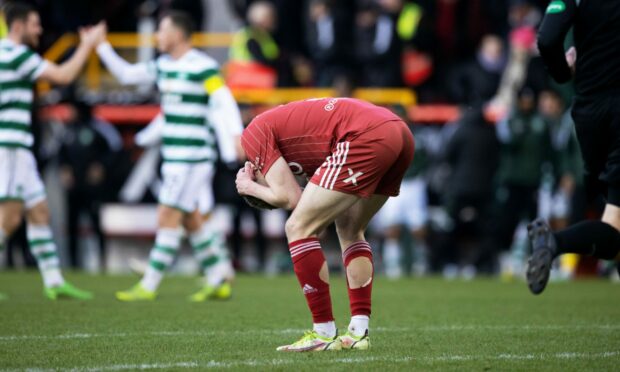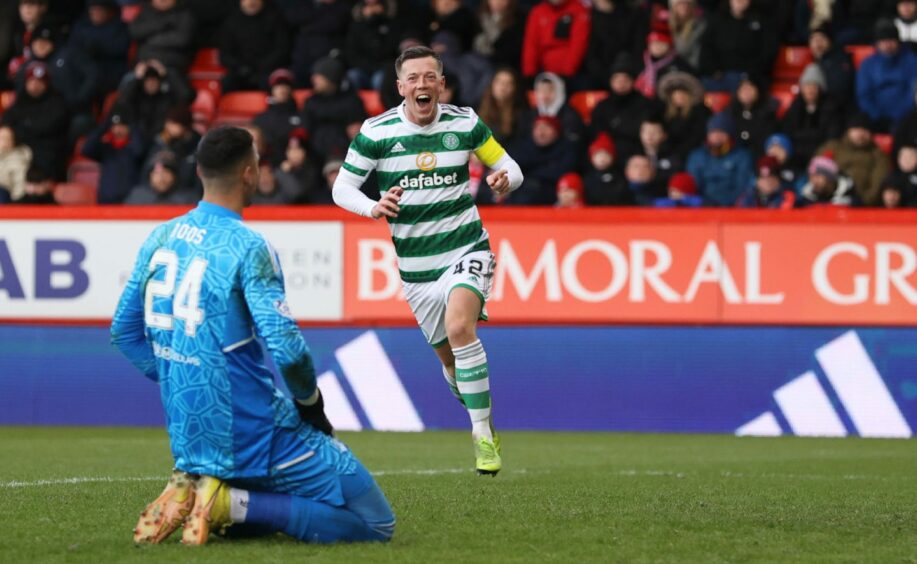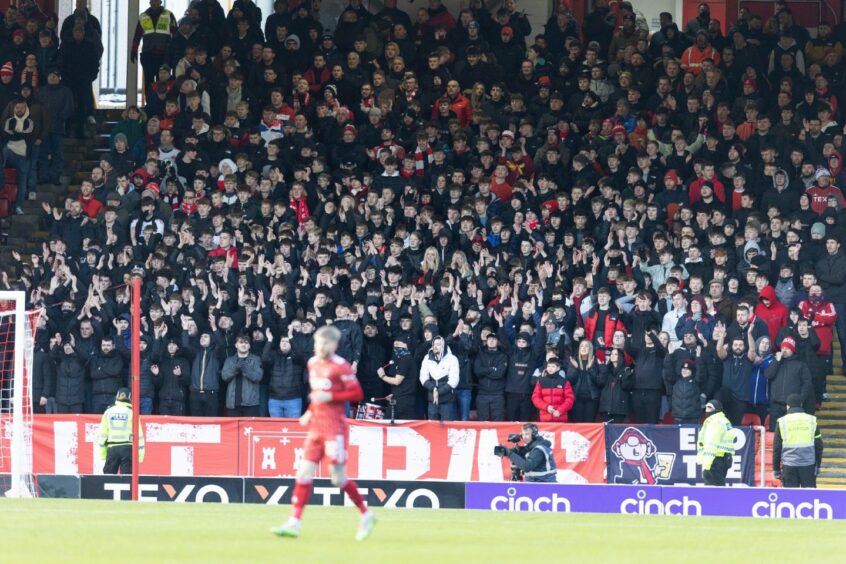Seven minutes short of a successful operation, or 87 minutes wasted?
When a strategy of essentially all-out defence is pierced so close to the end, it is the obvious reflection.
Fans will always say that they would prefer to see their team try to attack their opponents – especially on home turf, where the concession of ground is reflexively viewed as a badge of cowardice – but there is inevitably confirmation bias when rearguard actions fail to avert the feared defeat.
Such as it was, Jim Goodwin’s gameplan was working excellently until the game’s last knockings, for although Celtic had attempted over 30 shots Kelle Roos had rarely been strained.
Aberdeen’s penalty box defenders had produced enough blocks to build a new stadium and obviate that nagging question of funding.
And had Connor Barron correctly guessed which post to cover with his attempted charge-down of Callum McGregor’s final strike, it is likely Aberdeen would have walked away from this match with a point about which few of their supporters would have grumbled.
When the margins are that fine, it is harsh to call the tactics unmitigated or irredeemable failure.
Goodwin will justifiably feel that he can hardly do right for doing wrong: panned for showing such disrespect that he would attempt to win at Ibrox; now ridiculed for ostensibly not trying to do so against Celtic.
Though there may be a happy medium he is yet to uncover, in such circumstances logic dictates that Goodwin cannot be the problem.
Those anxious to critically dissect how Aberdeen have gone about this task should not seek to do so without acknowledging the context of a system which has allowed two clubs to commandeer so much of Scotland’s footballing influence and finance that the manager of the third-placed team must resort to such elaborate schemes.



Conversation